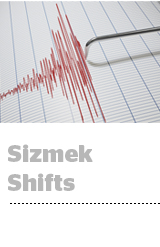 Sizmek filed for bankruptcy Friday night, ending the private equity-backed effort to integrate Sizmek and Rocket Fuel into a cohesive buy-side tech stack, and possibly ending the Sizmek brand.
Sizmek filed for bankruptcy Friday night, ending the private equity-backed effort to integrate Sizmek and Rocket Fuel into a cohesive buy-side tech stack, and possibly ending the Sizmek brand.
Sizmek’s bankruptcy filing estimates its assets between $100 million and $500 million. Though its liabilities are in the same range. Sizmek’s four largest outstanding debts are to Index Exchange, PubMatic, OpenX and AppNexus, which it owes $8.9 million, $7.3 million, $5.9 million and $5.3 million, respectively.
Sizmek’s list of unsecured claims – money owed for ad sales or services – underscores the challenge ad tech companies face fronting inventory costs before marketers actually pay for campaigns. Google, Verizon’s ad tech group, Rubicon Project, Bidswitch, Integral Ad Science, Sovrn and LiveRamp are each owed more than $1 million by Sizmek, and there are between 1,000 and 5,000 total creditors.
It’s unclear if and how much of Sizmek’s unsecured debts will be recouped.
Vector Capital spent almost $270 million combined to acquire Sizmek and Rocket Fuel from 2016 to 2017, following the well-traveled PE course of buying up ad tech companies, consolidating headcount and technology costs and flipping the asset to a bigger buyer like a telco or marketing cloud.
But Vector wasn’t able to turn Sizmek back to profitability and since last year closed further investments in the company. This situation means the private equity firm Cerberus Capital, which owned the debt on Vector’s deals, took over the equity stake in Sizmek.
Sizmek once again had to find new funding or face bankruptcy. Cerberus wasn’t willing to shoulder the costs alone, and apparently didn’t find a private equity backer to partner on a joint investment.
Sizmek was already a “Frankenstack” of point solutions like Peer39, PointRoll and StrikeAd. The addition of Rocket Fuel and Sizmek’s plan to consolidate all of its subsidiaries onto one ad server platform was a bridge too far.
For instance, after its acquisition by Vector, Sizmek reshaped its customer support teams to be generalists across the business, Sizmek sources told AdExchanger. The idea was to lower costs by more efficiently assigning people to clients or issues. But converting specialists in things like dynamic content optimization or contextual targeting to general support for Sizmek’s ad server, DSP and the Rocket Fuel DMP took time, and rattled some clients.
Integrating Sizmek’s many point solutions into one tech platform and consolidating its business operations also made it difficult to divest a subsidiary. When Vector shopped Sizmek last year, there was interest individually in the PointRoll dynamic creative shop, Peer39 contextual targeting or just the ad server business.
Cerberus will come out a winner, after it rinses the company of debts and sells off Sizmek’s individual profitable businesses, according to sources. Sizmek still controls the largest share of the online ad server market aside from Google. The other potential winners could be buyers that score bargain bin deals on valuable point solutions or Sizmek’s ad server footprint.











